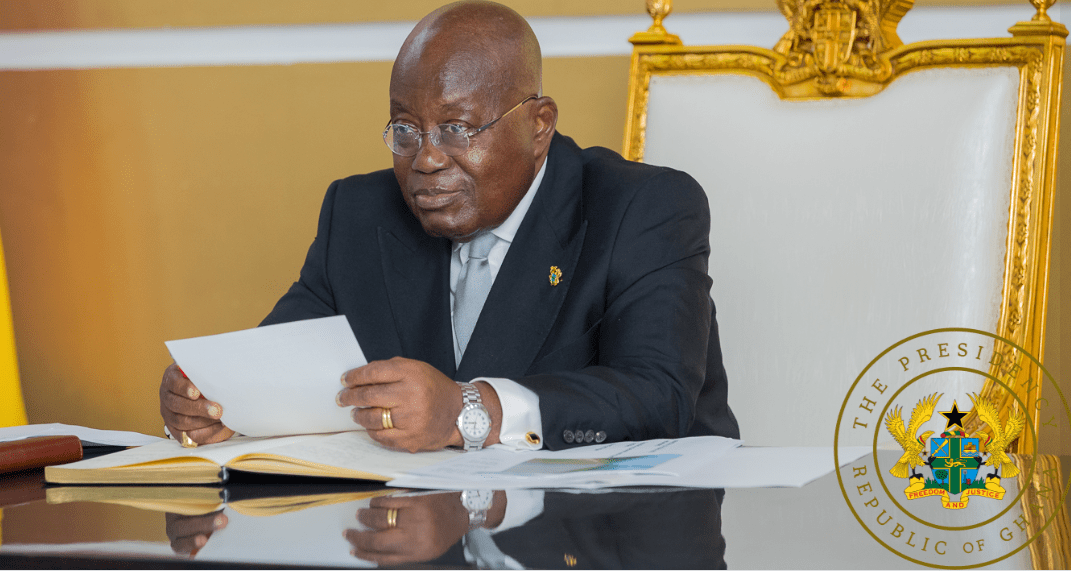 Ghana’s President, Nana Addo Dankwa Akufo-Addo, has approved the inclusion of nuclear power into the country’s power generation mix. The statement said the decision was in line with global collective commitment to ensure sustainable power to enhance rapid industrialisation, and to propel economic growth.
Ghana’s President, Nana Addo Dankwa Akufo-Addo, has approved the inclusion of nuclear power into the country’s power generation mix. The statement said the decision was in line with global collective commitment to ensure sustainable power to enhance rapid industrialisation, and to propel economic growth.
He said the announcement, technically known as the National Position, satisfied one of the key 19 infrastructure issues specified in the International Atomic Energy Agency’s (IAEA’s) Milestones Approach, which help member states understand the commitments and obligations associated with developing a nuclear power programme.
“This development informs the international community that the country has done what is necessary under phase one, which includes making a knowledgeable commitment and making a formal declaration, ” Akufo-Addo noted. “It gives the country the leverage over other countries within the [African] subregion, especially as there is a vision to make Ghana a power generation hub and provide stable electricity to propel development on the continent.”
The President has directed the Minister of Environment, Science, Technology and Innovation (MESTI) and the Minister of Energy (MoE) to collaborate with the Chief of Staff at the Presidency “to take all the necessary steps to move the Ghana Nuclear Power Programme Organisation (GNPPO) from MoE to the Office of the President, to enhance proper coordination among the key institutions already established.” The statement said the Ghana Atomic Energy Commission (GAEC) and its technical Institute, the Nuclear Power Institute (NPI-GAEC), would continue to play its supportive role to the GNPPO at the Office of the President following its re-alignment.
The Director of the Nuclear Power Institute of the Ghana Atomic Energy Commission, Professor Seth Kofi Debrah commended the government for moving the GNPPO to the Presidency. He said the GNPPO would be dealing with trade, human resource development, energy generation and regulations that would need a higher body to ensure effective and efficient coordination and implementation.
Ghana in 2013 submitted a letter to IAEA declaring the country’s intention to pursue a nuclear power programme for peaceful purposes.
This followed a cabinet decision in 2008 to include nuclear energy into the energy generation mix, leading to the establishment of the GNPPO to oversee the implementation and coordination of the nuclear power programme. Subsequently, two other key institutions were established – the Nuclear Regulatory Authority (NRA) Ghana, an independent nuclear regulatory body, and project company Nuclear Power Ghana (NPG) as potential NPP owner-operator.
In 2017 and 2019, Ghana hosted IAEA Integrated Nuclear Infrastructure Review (INIR) teams to assess its progress. The 2017 review provided 12 recommendations and eight suggestions to assist Ghana in making further progress in its infrastructure development. The follow-up INIR team concluded that Ghana has completed eight of the recommendations and six of the suggestions.
“It is evident that Ghana has made a concerted effort to address the recommendations and suggestions our team made two and half years ago,” said Anthony Stott, leader of the 2019 mission. “The main preparatory work needed for the government to be able to commit to go forward with the nuclear power programme has been done. What remains is further consideration of certain options to ensure Ghana is well prepared for discussions with vendors and other potential partners.” IAEA noted that Ghana has safely operated a nuclear research facility for 24 years and has significant experience with the non-power application of nuclear technology, including in the medical and industrial fields.
Image: Ghana’s President, Nana Akufo-Addo






